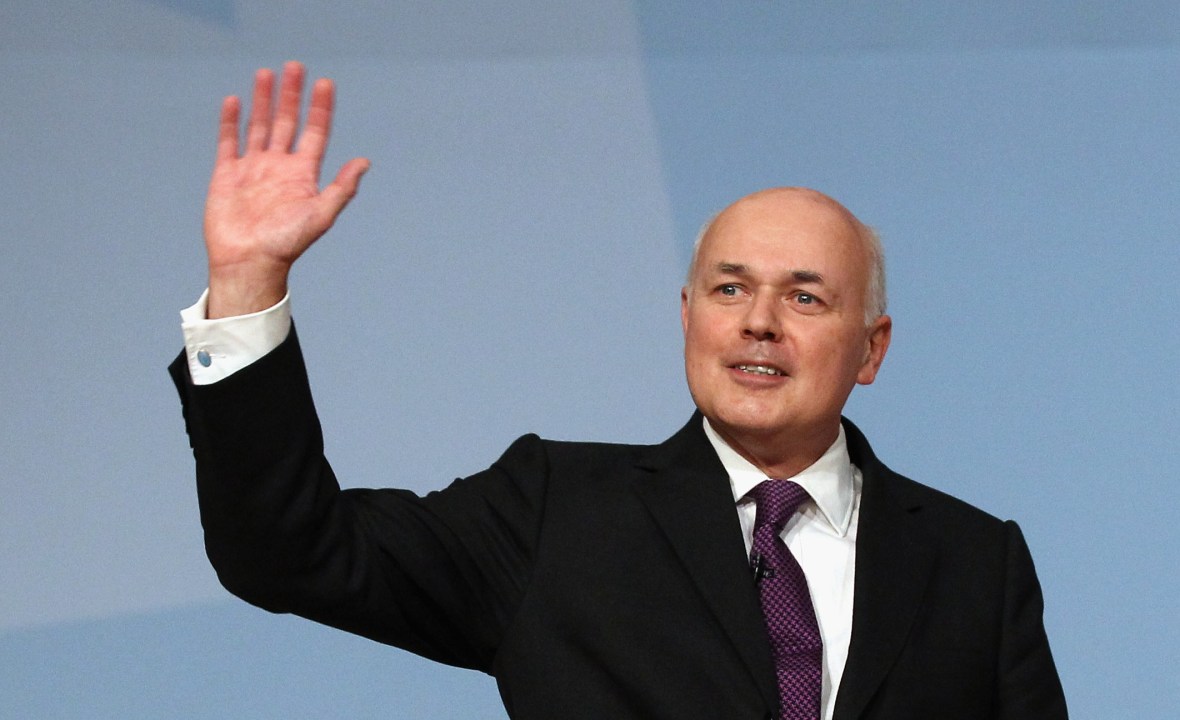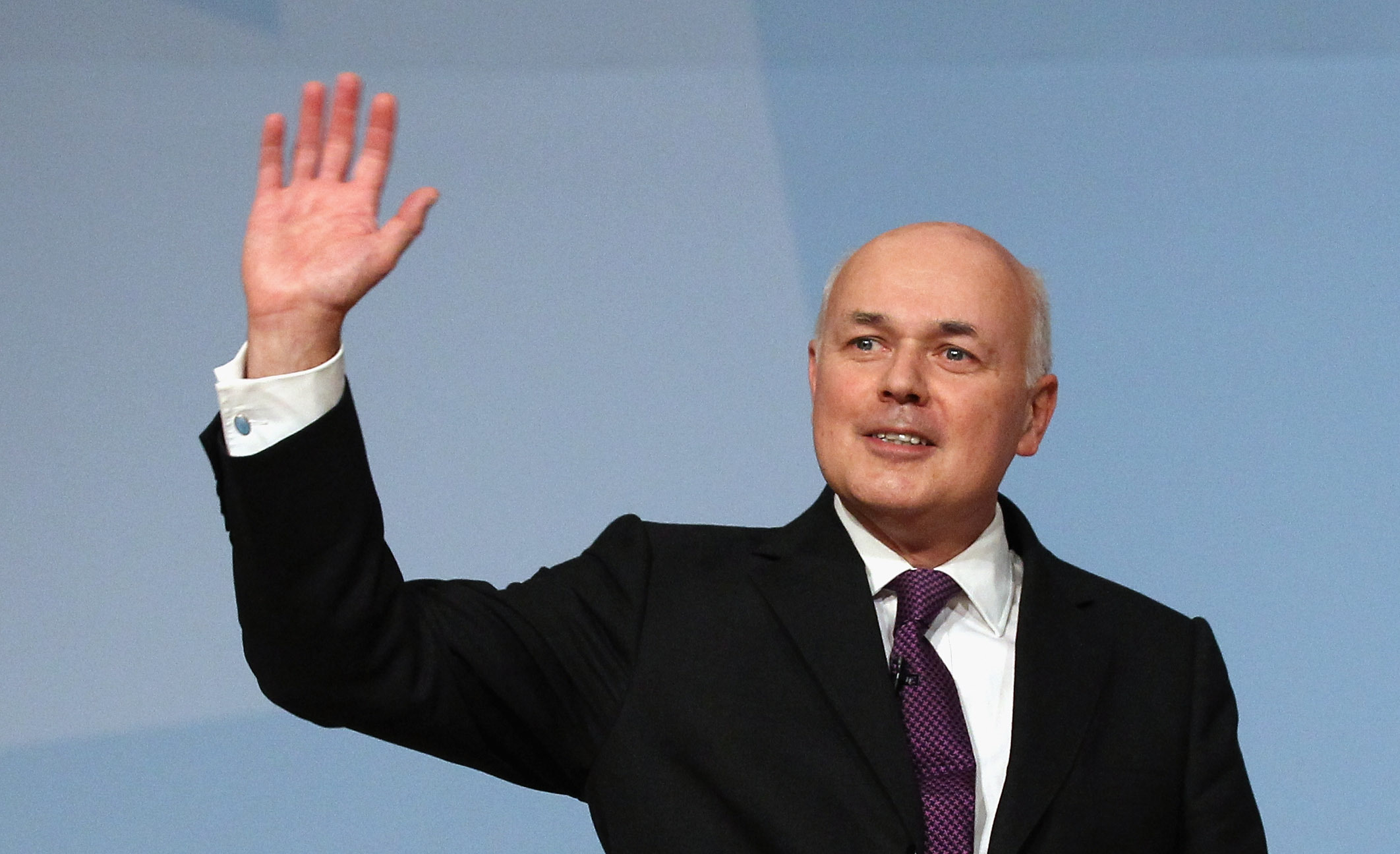 For years, I have complained that the Conservatives have timidly stayed within
Labour’s intellectual parameters, arguing that they need “permission” to make certain arguments and need to stay within the limits of what the public find acceptable. Such
intellectual timidity confined them to opposition: they can never win, playing by Labour rules. Iain Duncan Smith is breaking free of this. It may be rash to predict it now, but I believe he is on
the brink of a breakthrough in the way that welfare is regarded in Britain. This victory in a battle of ideas could be the greatest single blow against poverty in a generation. The extent of this
was crystallised by Polly Toynbee in the Guardian yesterday.
For years, I have complained that the Conservatives have timidly stayed within
Labour’s intellectual parameters, arguing that they need “permission” to make certain arguments and need to stay within the limits of what the public find acceptable. Such
intellectual timidity confined them to opposition: they can never win, playing by Labour rules. Iain Duncan Smith is breaking free of this. It may be rash to predict it now, but I believe he is on
the brink of a breakthrough in the way that welfare is regarded in Britain. This victory in a battle of ideas could be the greatest single blow against poverty in a generation. The extent of this
was crystallised by Polly Toynbee in the Guardian yesterday.
“The government may be winning the war of words,” she opens – as if. It is true that IDS is very good at explaining his agenda, but not because he’s a spinmeister.
It’s because he has devoted the last five years of his life to the cause, and wants to reform welfare or die trying. It’s his sole concern. But words? He used the word “sin”
the other day – Madeline Bunting detected that he might exposed himself as a Christian and launched into one of those secular inquisitions that the Guardian specialises in. It was not the best word to use, but at
least spoke about the depth of his conviction. Even Alan Johnson told The Times (£) that “IDS has no
ambition anymore, he just wants to do the right thing”. What enrages Toynbee about IDS is that no one – not even the Shadow Chancellor – doubts his sincerity.
We should perhaps pause here, to remember that before the election Theresa May was set to take charge of the welfare brief. I mean no disrespect to her by saying that she would not have had the
same impact. Moving IDS to this role was Osborne’s decision, and one made possible by coalition. We have the right man in the right job at the right time – and Toynbee hates it.
“People take at face value the ‘greatest reform since Beveridge’” she says – perhaps she can name a greater one. IDS proposes replacing the a complex patchwork of
benefits with a Universal Credit based on the principle that all work must pay. It is the complete rewriting of the UK benefits system. I can’t quite remember that happening since the
tri-party welfare state (Tories did education, Labour did health, Liberals did social security, and Churchill commissioned Beveridge in the first place – a point often erased from Labour
lore, where Attlee is credited with the whole shebang).
“Polls showed unsurprising support for the plans. Who doesn’t want to ‘reward work and support the vulnerable’” How Toynbee must have hated typing those words. But
she’s right – a YouGov poll for Channel Four showed 68% support
capping housing benefit at £400 a week, “even if this means people are forced to move house if they live in an area where the rent is high”. So the population do not share her
indignation.
“If it was that easy, why wouldn’t the big and equally tough brains of previous DWP secretaries have done it?” No one is saying it’s easy. It’s the toughest job in
politics – but the wheels turn slowly. John Hutton and James Purnell gave it their all, but the DWP controls more lives than East Germany did and this is Glasnost. Blair saw the need for it,
inspired by the Clinton/Gingrich reforms, but gave up as soon as the disabled started chaining themselves to the railings of parliament. The year after, Brown delivered his now-notorious Rowntree
lecture, defining poverty as a massive spreadsheet exercise with the IFS as judge and jury, and welfare reform was dropped. The failings of the system were apparent only after the current system,
where we see immigration accounting for 99 percent (not 70 percent as IDS said) of all working-age jobs created under Labour.
Toynbee continues: “IDS hammered Labour for the way claimants lose so much benefit when they earn more, so what is his reform? For the great majority, instead of keeping 30p for every extra
pound earned, they can keep 35p. Is 5p a clincher?” Is this the best she can do to misrepresent IDS plans? What they propose to do is best illustrated in a graph which Pete Hoskin produced in
his neat summary of the IDS White Paper:

But what heartens me most is to hear Toynbee charge Labour with the offence that I charged the Tories with: accepting the premises of their opponents. “Labour is falling into the traps, it
accepts the principles IDS lays out because they are the aim of all good welfare – to urge all into work, while protecting the weak.” But Labour has no competing idea. For the first
time in years, the Tories have engaged in a battle of ideas – and are winning the argument. Winning over the public. Arguing that they are the new workers’ party, that we can’t
afford to keep five million on benefits and it’s hard to say there are no jobs while immigrants are taking them at the rate of 1,580 a day (and that’s even in Q2 of 2010)
This is how you remould politics. It’s not a tactical trick, it’s not spin, it’s not populism. IDS is not trying to play political chess. He is advancing an agenda that he
believes in with all his heart – and the public are willing to give him a try. Labour is intellectually exhausted, and Toynbee knows it. The result is the best chance we’ve had in a
generation to make British poverty history.








Comments